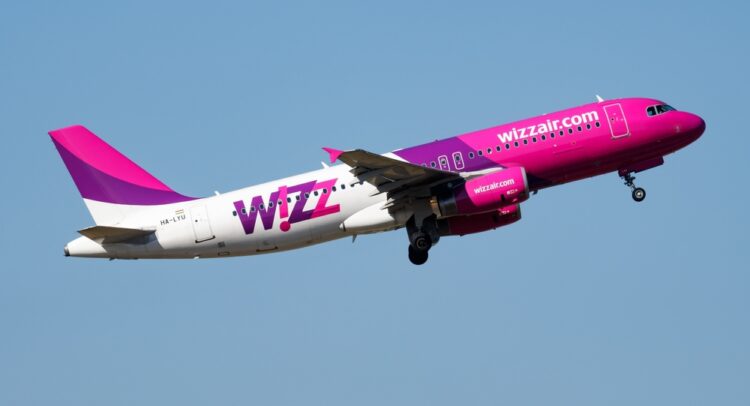Wizz Air Holdings PLC (GB:WIZZ) expects to return to growth and come out of the ongoing engine woes in Fiscal 2026. The low-cost Hungarian airline, which has an all-Airbus (FR:AIR) fleet, has been under pressure due to the grounding of aircraft for inspection of powder metal issues in the PW1100G-JM geared turbofan (GTF) engines of U.S. engine maker Pratt & Whitney. Wizz Air announced a new agreement with Pratt & Whitney to address these engine issues.
Wizz Air Strikes New Agreement with Pratt & Whitney
Wizz Air expects a continued grounding of about 40 Airbus A320NEO family aircraft through Fiscal 2026 due to inspections related to its GTF fleet. It has entered into a commercial support agreement with Pratt & Whitney, under which the American engine maker will offer commercial support and a compensation package to cover Wizz Air’s direct costs associated with the aircraft that are grounded or expected to be grounded.
Additionally, Wizz Air expects to return to growth in Fiscal 2026, supported by deliveries of 50 new Airbus A321NEO aircraft and a 20% increase in seat capacity. The company expects the purchase of the latest technology aircraft to strengthen its fuel-efficient operations and boost the share of the A321NEO planes to 77% of its fleet, as it continues to retire the A320CEO family aircraft.
The ongoing engine issues and the Middle East conflict have weighed on Wizz Air’s performance. In November 2024, the company reported a larger-than-expected decline in its profit for the first half of the year.
Is Wizz Air Stock a Good Buy?
Given the dismal financial results and engine woes, analysts have a Hold consensus rating on Wizz Air based on three Buys, three Holds, and two Sell recommendations. The average WIZZ stock price target of 2,846.25p implies about 98% upside potential. Shares have declined over 35% in the past year.

Questions or Comments about the article? Write to editor@tipranks.com
















